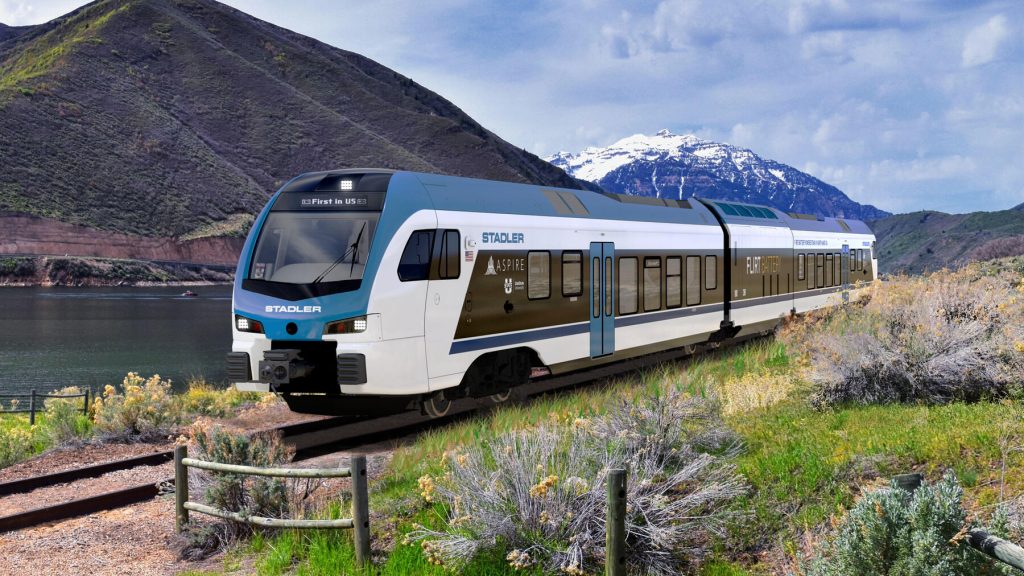 The Utah State University (USU), the ASPIRE Engineering Research Center and Stadler signed a contract to develop and test a Flirt Akku battery train for the US market.
The Utah State University (USU), the ASPIRE Engineering Research Center and Stadler signed a contract to develop and test a Flirt Akku battery train for the US market.
The three sides will collaborate to develop, build and test the single-decker two-car multiple unit designed for regional transport. Thanks to its battery drive, it allows CO2 emission-free rail transport on non-electrified lines.
In cooperation with ASPIRE, Stadler is now developing a Flirt Akku model tailored to the American market. This requires extensive research and development work to adapt the vehicle to the American infrastructure and national regulations.
“The Utah Legislature is committed to developing strong public-private partnerships like this, that result in innovative solutions to critical issues facing our state. We are thrilled to be partners in this project and look forward to its success,” Mike Schultz, Majority Leader, Utah House of Representatives, said.
While Stadler is concentrating on the design and production of the train, ASPIRE is working on the development of the trackside charging infrastructure for the vehicle. During subsequent extensive test runs, ASPIRE, USU and Stadler hope to gain important insights for the decarbonisation of American passenger transport through the use of battery-powered trains.
«We are honored to partner with Stadler on this groundbreaking project. Success will bring design and manufacturing jobs to Utah. It will also chart the path to electrified commuter and light rail systems along the Wasatch Front. The battery-electric train solution will improve air quality and reduce operating costs while supporting shared charging infrastructure with trucks, buses, and cars,” Regan Zane, Director of the NSF ASPIRE Engineering Research Center, said.
The Flirt Akku battery train has an operating range of 100 km. Having covered 224 km in battery-only mode, the train holds the world record for the longest journey travelled by a regional train in battery-only mode without additional charging.
Share on:



